Abdur Rashid
A Comprehensive Review on Understanding the Decentralized and Collaborative Approach in Machine Learning
Mar 12, 2025



Abstract:The arrival of Machine Learning (ML) completely changed how we can unlock valuable information from data. Traditional methods, where everything was stored in one place, had big problems with keeping information private, handling large amounts of data, and avoiding unfair advantages. Machine Learning has become a powerful tool that uses Artificial Intelligence (AI) to overcome these challenges. We started by learning the basics of Machine Learning, including the different types like supervised, unsupervised, and reinforcement learning. We also explored the important steps involved, such as preparing the data, choosing the right model, training it, and then checking its performance. Next, we examined some key challenges in Machine Learning, such as models learning too much from specific examples (overfitting), not learning enough (underfitting), and reflecting biases in the data used. Moving beyond centralized systems, we looked at decentralized Machine Learning and its benefits, like keeping data private, getting answers faster, and using a wider variety of data sources. We then focused on a specific type called federated learning, where models are trained without directly sharing sensitive information. Real-world examples from healthcare and finance were used to show how collaborative Machine Learning can solve important problems while still protecting information security. Finally, we discussed challenges like communication efficiency, dealing with different types of data, and security. We also explored using a Zero Trust framework, which provides an extra layer of protection for collaborative Machine Learning systems. This approach is paving the way for a bright future for this groundbreaking technology.
Fall Detection from Indoor Videos using MediaPipe and Handcrafted Feature
Mar 03, 2025Abstract:Falls are a common cause of fatal injuries and hospitalization. However, having fall detection on person, in particular for senior citizens can prove to be critical. Presently,there are handheld, ambient detector and vision-based detection techniques being utilized for fall detection. However, the approaches have issues with accuracy and cost. In this regard, in this research, an approach is proposed to detect falls in indoor environments utilizing the handcrafted features extracted from human body skeleton. The human body skeleton is formed using MediaPipe framework. Results on UR Fall detection show the superiority of our model, capable of detecting falls correctly in a wide number of settings involving people belonging to different ages and genders. This proposed model using MediaPipe for fall classification in daily activities achieves significant accuracy compare to the present existing approaches.
Principles and Components of Federated Learning Architectures
Feb 07, 2025Abstract:Federated learning, also known as FL, is a machine learning framework in which a significant amount of clients (such as mobile devices or whole enterprises) collaborate to collaboratively train a model while keeping decentralized training data, all overseen by a central server (such as a service provider). There are advantages in terms of privacy, security, regulations, and economy with this decentralized approach to model training. FL is not impervious to the flaws that plague conventional machine learning models, despite its seeming promise. This study offers a thorough analysis of the fundamental ideas and elements of federated learning architectures, emphasizing five important areas: communication architectures, machine learning models, data partitioning, privacy methods, and system heterogeneity. We additionally address the difficulties and potential paths for future study in the area. Furthermore, based on a comprehensive review of the literature, we present a collection of architectural patterns for federated learning systems. This analysis will help to understand the basic of Federated learning, the primary components of FL, and also about several architectural details.
An Extensive and Methodical Review of Smart Grids for Sustainable Energy Management-Addressing Challenges with AI, Renewable Energy Integration and Leading-edge Technologies
Jan 23, 2025

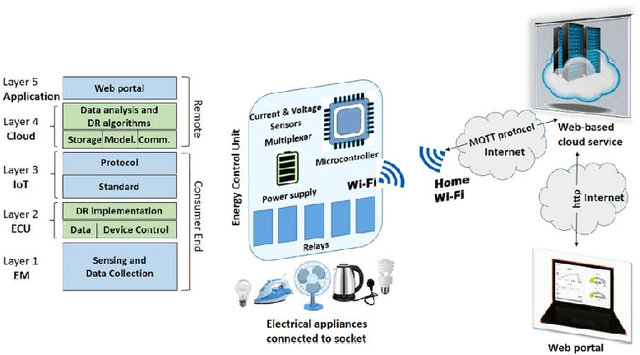
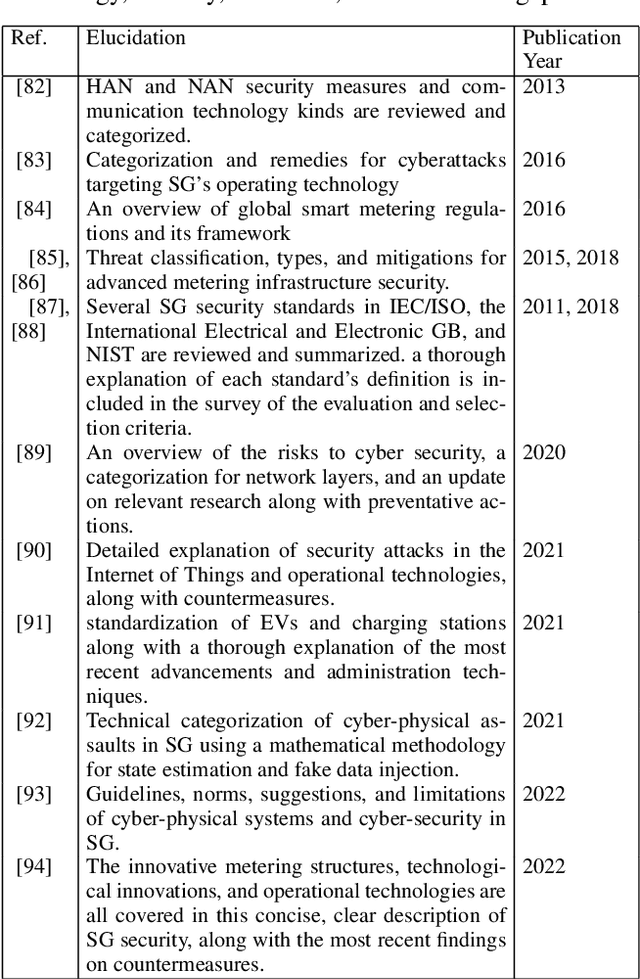
Abstract:Energy management decreases energy expenditures and consumption while simultaneously increasing energy efficiency, reducing carbon emissions, and enhancing operational performance. Smart grids are a type of sophisticated energy infrastructure that increase the generation and distribution of electricity's sustainability, dependability, and efficiency by utilizing digital communication technologies. They combine a number of cutting-edge techniques and technology to improve energy resource management. A large amount of research study on the topic of smart grids for energy management has been completed in the last several years. The authors of the present study want to cover a number of topics, including smart grid benefits and components, technical developments, integrating renewable energy sources, using artificial intelligence and data analytics, cybersecurity, and privacy. Smart Grids for Energy Management are an innovative field of study aiming at tackling various difficulties and magnifying the efficiency, dependability, and sustainability of energy systems, including: 1) Renewable sources of power like solar and wind are intermittent and unpredictable 2) Defending smart grid system from various cyber-attacks 3) Incorporating an increasing number of electric vehicles into the system of power grid without overwhelming it. Additionally, it is proposed to use AI and data analytics for better performance on the grid, reliability, and energy management. It also looks into how AI and data analytics can be used to optimize grid performance, enhance reliability, and improve energy management. The authors will explore these significant challenges and ongoing research. Lastly, significant issues in this field are noted, and recommendations for further work are provided.
Trustworthy XAI and Application
Oct 22, 2024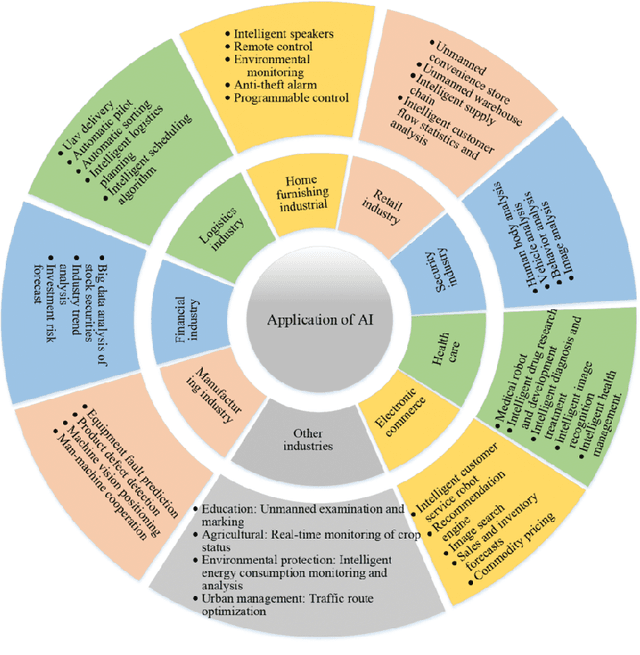

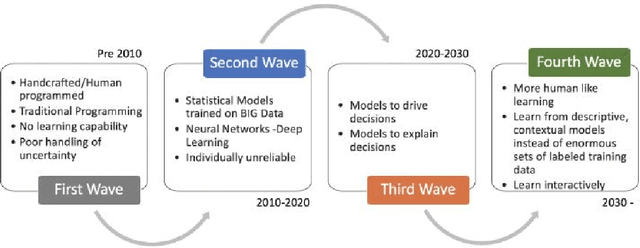
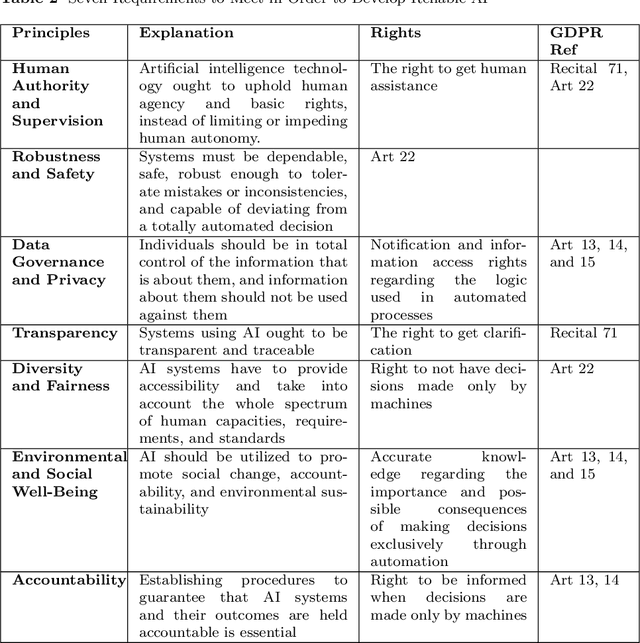
Abstract:One of today's most significant and transformative technologies is the rapidly developing field of artificial intelligence (AI). Deined as a computer system that simulates human cognitive processes, AI is present in many aspects of our daily lives, from the self-driving cars on the road to the intelligence (AI) because some AI systems are so complex and opaque. With millions of parameters and layers, these system-deep neural networks in particular-make it difficult for humans to comprehend accountability, prejudice, and justice are raised by the opaqueness of its decision-making process. AI has a lot of potential, but it also comes with a lot of difficulties and moral dilemmas. In the context of explainable artificial intelligence (XAI), trust is crucial as it ensures that AI systems behave consistently, fairly, and ethically. In the present article, we explore XAI, reliable XAI, and several practical uses for reliable XAI. Once more, we go over the three main components-transparency, explainability, and trustworthiness of XAI-that we determined are pertinent in this situation. We present an overview of recent scientific studies that employ trustworthy XAI in various application fields. In the end, trustworthiness is crucial for establishing and maintaining trust between humans and AI systems, facilitating the integration of AI systems into various applications and domains for the benefit of society.
Power Plays: Unleashing Machine Learning Magic in Smart Grids
Oct 20, 2024
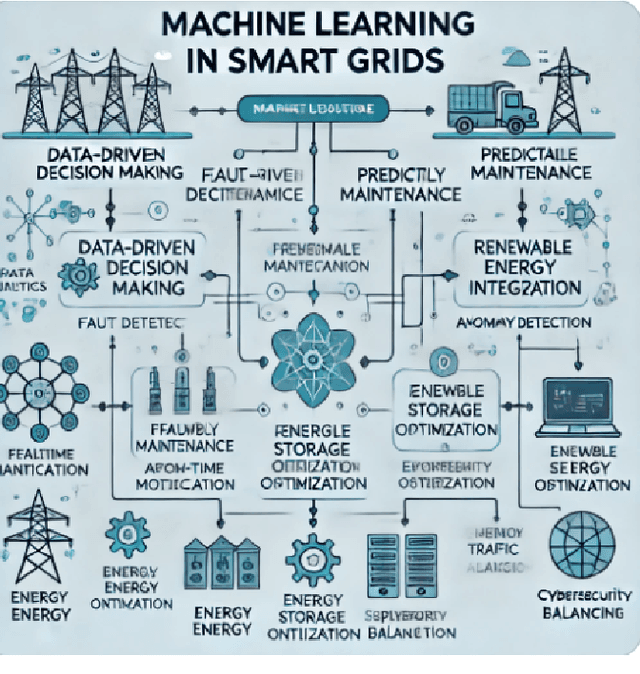

Abstract:The integration of machine learning into smart grid systems represents a transformative step in enhancing the efficiency, reliability, and sustainability of modern energy networks. By adding advanced data analytics, these systems can better manage the complexities of renewable energy integration, demand response, and predictive maintenance. Machine learning algorithms analyze vast amounts of data from smart meters, sensors, and other grid components to optimize energy distribution, forecast demand, and detect irregularities that could indicate potential failures. This enables more precise load balancing, reduces operational costs, and enhances the resilience of the grid against disturbances. Furthermore, the use of predictive models helps in anticipating equipment failures, thereby improving the reliability of the energy supply. As smart grids continue to evolve, the role of machine learning in managing decentralized energy sources and enabling real-time decision-making will become increasingly critical. However, the deployment of these technologies also raises challenges related to data privacy, security, and the need for robust infrastructure. Addressing these issues in this research authors will focus on realizing the full potential of smart grids, ensuring they meet the growing energy demands while maintaining a focus on sustainability and efficiency using Machine Learning techniques. Furthermore, this research will help determine the smart grid's essentiality with the aid of Machine Learning. Multiple ML algorithms have been integrated along with their pros and cons. The future scope of these algorithms are also integrated.
Securing the Diagnosis of Medical Imaging: An In-depth Analysis of AI-Resistant Attacks
Aug 01, 2024



Abstract:Machine learning (ML) is a rapidly developing area of medicine that uses significant resources to apply computer science and statistics to medical issues. ML's proponents laud its capacity to handle vast, complicated, and erratic medical data. It's common knowledge that attackers might cause misclassification by deliberately creating inputs for machine learning classifiers. Research on adversarial examples has been extensively conducted in the field of computer vision applications. Healthcare systems are thought to be highly difficult because of the security and life-or-death considerations they include, and performance accuracy is very important. Recent arguments have suggested that adversarial attacks could be made against medical image analysis (MedIA) technologies because of the accompanying technology infrastructure and powerful financial incentives. Since the diagnosis will be the basis for important decisions, it is essential to assess how strong medical DNN tasks are against adversarial attacks. Simple adversarial attacks have been taken into account in several earlier studies. However, DNNs are susceptible to more risky and realistic attacks. The present paper covers recent proposed adversarial attack strategies against DNNs for medical imaging as well as countermeasures. In this study, we review current techniques for adversarial imaging attacks, detections. It also encompasses various facets of these techniques and offers suggestions for the robustness of neural networks to be improved in the future.
AI-Driven Approaches for Optimizing Power Consumption: A Comprehensive Survey
Jun 22, 2024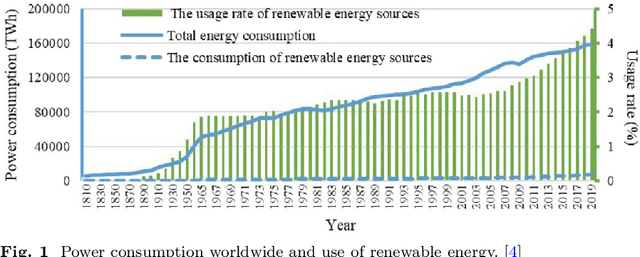
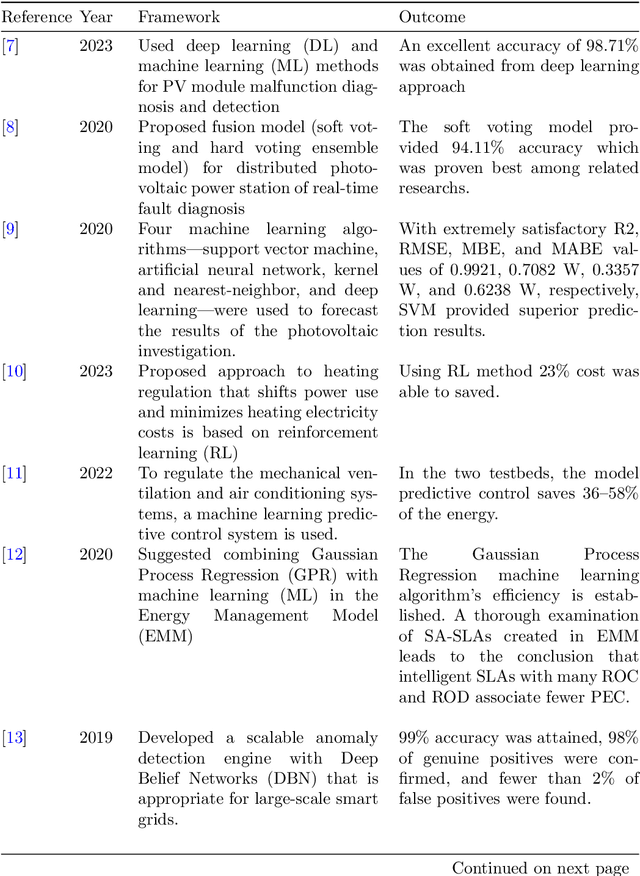
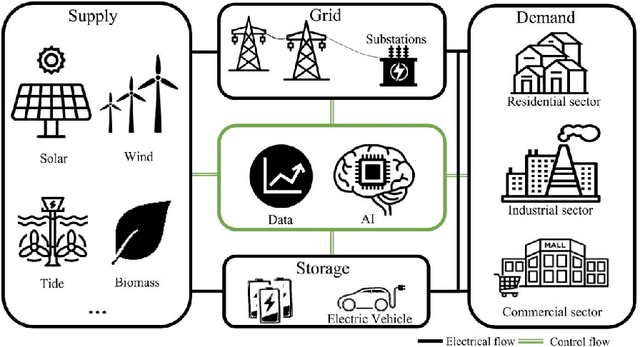
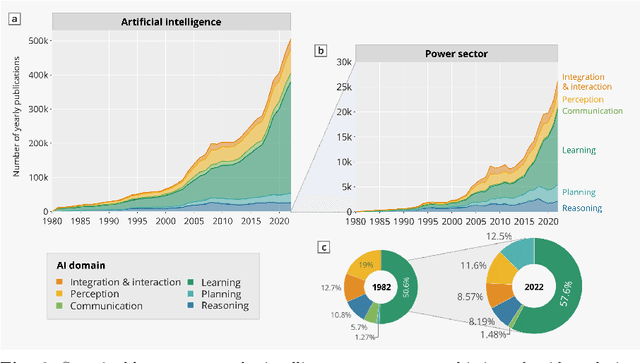
Abstract:Reduced environmental effect, lower operating costs, and a stable and sustainable energy supply for current and future generations are the main reasons why power optimization is important. Power optimization makes ensuring that energy is used more effectively, cutting down on waste and optimizing the utilization of resources.In today's world, power optimization and artificial intelligence (AI) integration are essential to changing the way energy is produced, used, and distributed. Real-time monitoring and analysis of power usage trends is made possible by AI-driven algorithms and predictive analytics, which enable dynamic modifications to effectively satisfy demand. Efficiency and sustainability are increased when power consumption is optimized in different sectors thanks to the use of intelligent systems. This survey paper comprises an extensive review of the several AI techniques used for power optimization as well as a methodical analysis of the literature for the study of various intelligent system application domains across different disciplines of power consumption.This literature review identifies the performance and outcomes of 17 different research methods by assessing them, and it aims to distill valuable insights into their strengths and limitations. Furthermore, this article outlines future directions in the integration of AI for power consumption optimization.
Present and Future of AI in Renewable Energy Domain : A Comprehensive Survey
Jun 22, 2024
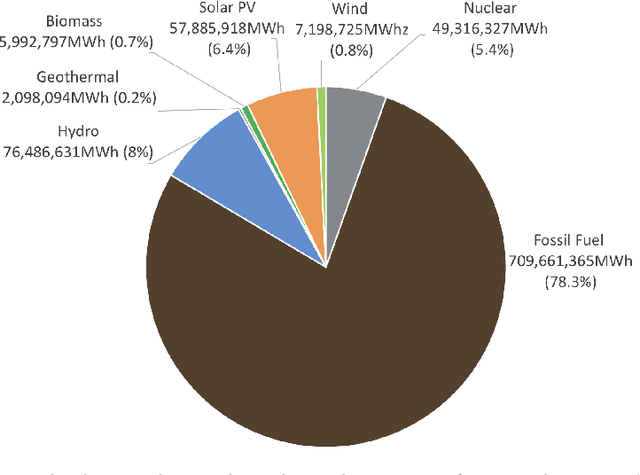
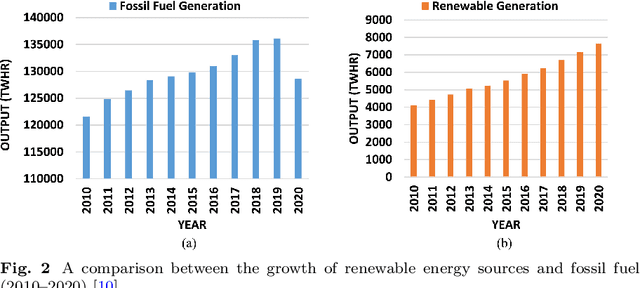

Abstract:Artificial intelligence (AI) has become a crucial instrument for streamlining processes in various industries, including electrical power systems, as a result of recent digitalization. Algorithms for artificial intelligence are data-driven models that are based on statistical learning theory and are used as a tool to take use of the data that the power system and its users generate. Initially, we perform a thorough literature analysis of artificial intelligence (AI) applications related to renewable energy (RE). Next, we present a thorough analysis of renewable energy factories and assess their suitability, along with a list of the most widely used and appropriate AI algorithms. Nine AI-based strategies are identified here to assist Renewable Energy (RE) in contemporary power systems. This survey paper comprises an extensive review of the several AI techniques used for renewable energy as well as a methodical analysis of the literature for the study of various intelligent system application domains across different disciplines of renewable energy. This literature review identifies the performance and outcomes of nine different research methods by assessing them, and it aims to distill valuable insights into their strengths and limitations. This study also addressed three main topics: using AI technology for renewable power generation, utilizing AI for renewable energy forecasting, and optimizing energy systems. Additionally, it explored AI's superiority over conventional models in controllability, data handling, cyberattack prevention, smart grid implementation, robotics- AI's significance in shaping the future of the energy industry. Furthermore, this article outlines future directions in the integration of AI for renewable energy.
 Add to Chrome
Add to Chrome Add to Firefox
Add to Firefox Add to Edge
Add to Edge